
University certificate
Scientific endorser
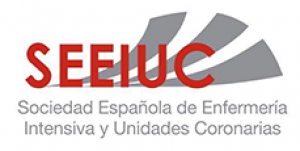
The world's largest faculty of nursing”
Description
With the online postgraduate diploma in Newborn Nutrition and Feeding for Nurses you have the opportunity to update your knowledge in a practical way and without renouncing to the maximum scientific rigor, to incorporate the latest advances in nursing care of the newborn"
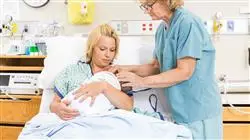
Neonatal feeding is one of the most important aspects in the design of care plans. The idiosyncrasy of the newborn and its fragility means that all patterns of basic needs have to be covered in a much more precise and sensitive way. This context makes the updating of the procedures in the care performed in the neonatal intensive care unit by the nursing professional of paramount importance to maintain care based on the latest scientific evidence and to ensure the safety of the baby.
This course includes the most relevant topics about the admission of the newborn to the neonatology service or NICU, the knowledge and management of water, electrolyte and metabolic disorders of the newborn, as well as the digestive disorders they may suffer, their feeding patterns and the medical-legal aspects in neonatology. In addition, it places special emphasis on the implementation of measures to improve patient safety in the Neonatal Unit, providing relevant knowledge on food and routes of administration, dosage, preparation, monitoring, side effects and incompatibilities.
The postgraduate diploma in nutrition and feeding in the newborn for nurses allows, in a practical way, to achieve this update of the most used procedures to contribute with quality and safety to the recovery of newborns, improve their prognosis and avoid the sequelae of severe pathology.
In addition, it will facilitate the incorporation to the labor market in this field, due to the need for nursing professionals trained in the care of the critical newborn in neonatal intensive care units.
Improve the care of your newborn patients with the specialization offered by the postgraduate diploma in Nutrition and Feeding for Nurses"
This postgraduate diploma in Newborn Nutrition and Feeding for Nurses contains the most complete and up to date scientific program on the market. Development of clinical cases presented by experts in the different areas of multidisciplinary knowledge.
- Development of clinical cases presented by experts in the different specialties. The graphic, schematic, and eminently practical contents of which they are composed provide scientific and practical information on the disciplines that are essential for professional practice
- New developments in the composition and usefulness of foods and their administration to the newborn patient and in neonatal intensive care units
- Presentation of practical workshops on breastfeeding, procedures, nursing care and neonatal feeding techniques
- Algorithm-based interactive learning system for decision-making in the presented clinical situations
- Practical guides on different pathologies. These guides follow the scientific and pedagogical criteria of the main scientific reference societies
- All this will be complemented by theoretical lessons, questions to the expert, debate forums on controversial topics, and individual reflection assignments
- Content that is accessible from any fixed or portable device with an Internet connection
This postgraduate diploma may be the best investment you can make in the selection of a refresher program for two reasons: in addition to updating your knowledge in neonatal feeding, you will obtain a postgraduate diploma from TECH Technological University"
Its teaching staff includes specialists of recognized prestige in the field of neonatology, who bring to this specialization the experience of their work in the main health centers in the country.
The multimedia content developed with the latest educational technology will provide the professional with situated and contextual learning, i.e., a simulated environment that will provide an immersive training program to train in real situations.
This program is designed around Problem Based Learning, whereby the nursing professional must try to solve various typical professional practice situations that arise during the course. To this end, the nursing professional will be assisted by an innovative interactive video system developed by recognized experts in newborn patient care and with extensive teaching experience.
Increase your career opportunities by taking the postgraduate diploma Newborn Nutrition and Feeding for Nurses"
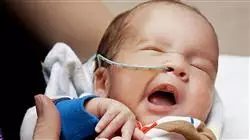
It includes real clinical cases to bring the development of the program as close as possible to everyday practice"
Objectives
This Postgraduate Diploma is oriented to achieve an effective update of the nursing professional's knowledge in the use of pharmacology in the newborn, in order to provide quality care, based on the latest scientific evidence to ensure patient safety.
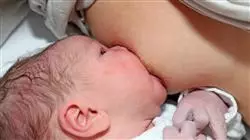
This refresher program will generate a sense of security when providing neonatal care, which will help you grow both personally and professionally”
General Objectives
- Manage nursing care oriented to the satisfaction of the needs derived from the newborn's health problems and the prevention of complications, guaranteeing a safe and quality practice
- Provide comprehensive newborn care from an ethical and legal perspective
- Decide effectively and efficiently the different procedures, diagnostic tests and treatments derived from the different health problems in the newborn taking into account the different levels of care
- Update comprehensive care of the neonate with a surgical process to assist in the optimal restoration of health and to identify, intervene and/or refer for possible complications
- Update the use and indication of medical devices and/or drugs, evaluating the benefits
Specific Objectives
- Identify the anatomophysiological differences between the neonate, the child and the adolescent (pediatric ages)
- Differentiate between the different neonatal stages, as well as neonatal stages by gestational age and neonatal stages by birth weight
- Revise the anatomical and physiological characteristics of a normal newborn
- Describe the somatometry of the newborn, as well as its morphological and physiological characteristics
- Assess the entire examination process, sequence of physical examination and complete physical examination of the newborn, focusing primarily on the head and neck region, the torso and the limbs
- Incorporate the realization of the complete neurological examination into routine practice
- Define the technique for the physical examination of the newborn upon arrival in the neonatal ward
- Understand the reception of the newborn in the NICU, the admission criteria, its objectives and the necessary nursing interventions
- Classify the criteria and objectives for admission of a neonate to the NICU; as well as the necessary nursing interventions
- Evaluate the technique of physical examination of the newborn upon arrival in the NICU
- Organize the types of neonatal transfers, their objectives and purpose
- Differentiate the equipment necessary to perform an adequate neonatal transfer
- Distinguish between the main objectives for fluid management in newborns less than 1,500g
- Update the different ways of calculating water balance in the severely ill NB
- Calculate insensible losses or insensible gains in a newborn with weight gain or weight loss
- Differentiate between very premature and hyperosmolar state
- Establish when fluids should be restricted in the grand premature infant
- Identify when the need for fluids should be increased in a very premature newborn
- Review what is involved in the feeding of the NB
- Explain the infant's requirements and feeding objectives
- Describe the procedure and benefits of breastfeeding
- Identify other types of feeding applicable in the Neonatal Unit and NICU such as enteral nutrition and parenteral nutrition
- Explain the indications and contraindications for enteral nutrition and parenteral nutrition
- Review recommendations for the management of enteral nutrition and parenteral nutrition routes of administration
- Differentiate the components of parenteral nutrition
- Design the preparation and administration of parenteral nutrition
- Update the parenteral nutrition withdrawal guideline
- Revise the general aspects of neonatal gastroenterology: embryology and the anatomy of the digestive tract
- Describe the management of nasogastric and orogastric tubes
- Explain what gastroesophageal reflux is
- Interpret the symptomatology of esophageal atresia
- Contrast the management of necrotizing enterocolitis
- Update and describe techniques for ostomy care
- Review the healthcare system, its regulations and norms
- Value the code of ethics and deontology of the medical and nursing professional organization
- Determine how information should be given to the patient and family members
- Develop informed consent
- Describe treatment refusal
- Include in the usual practice when to apply professional secrecy
- Review and describe the data protection law (LOPD)
- Review and describe the law for organ donation
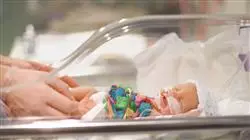
If your goal is to become a healthcare professional capable of communicating fluently in English, this program is for you"
Postgraduate Diploma in Newborn Nutrition and Feeding for Nursing
Are you looking to focus your career on Newborn Nutrition and Feeding? TECH has the answer! The Postgraduate Diploma in Newborn Nutrition and Feeding for Nursing will provide you with comprehensive, up-to-date training in neonatal nutrition and feeding, with a practical, clinical decision-making oriented approach. You will cover the anatomy and digestive physiology of the newborn, the different types of milks and formulas, feeding techniques, parenteral nutrition administration, as well as nutrition monitoring and the prevention and treatment of nutritional complications.
Aspire to great professional challenges
Newborn Feeding is a crucial issue in the first days of life. Breast milk is the ideal food for newborns and has unique benefits for their development and health. However, in some situations, feeding with special milk formulas or even parenteral nutrition becomes necessary. With this Postgraduate Diploma in Newborn Nutrition and Feeding for Nursing you will learn more about these scenarios, as well as the most optimal models of care in each case. All this from the hand of experts in Nutrition and Pediatrics who will guide you in this academic journey.






